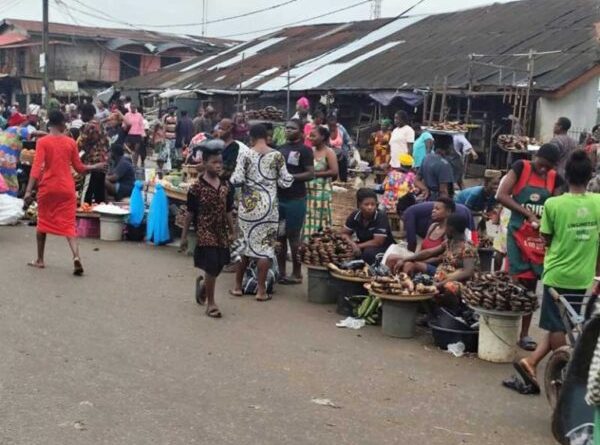Nigerian businesses battling high costs, insecurity
Nigeria’s business environment maintained a positive trajectory in October, but companies across key sectors continued to face significant structural and financial constraints.
This is contained in the latest Business Confidence Monitor (BCM) report published by the Nigerian Economic Summit Group (NESG) and Stanbic IBTC.
According to the report released on Tuesday, the Current Business Performance Index rose to 111.3 points in October from 107.9 points in September, marking a 3.4-point increase and a 34.5-point improvement year-on-year compared with October 2024.
The index remained in the expansion zone, reflecting steady business activity and cautious optimism among firms.
The improvement was largely driven by stronger performance in manufacturing and trade, which rose by 8.8 points and 7.8 points respectively to 111.3 and 115.4. Other sectors also expanded, non-manufacturing (115.0), agriculture (111.4) and services (111.0) ,though at a slower pace than in September.
Despite this progress, Nigerian businesses are still battling deep-rooted operational challenges that continue to constrain productivity and investment.
These include limited access to finance, high operating and energy costs, policy uncertainty, weak infrastructure, erratic power supply, and persistent insecurity across key markets.
“Major constraints to business growth during the month included limited access to finance, high rental cost, policy uncertainty, poor power supply and insecurity,” the report said.
While the overall cost of doing business eased slightly due to moderating inflation, financing constraints and high property costs remained major concerns.
Several firms also reported difficulty obtaining credit and sustaining production levels amid inconsistent policy signals and inadequate infrastructure.
Key BCM sub-indices, covering investment, exports, access to credit, and prices, showed modest improvements relative to August 2025, suggesting a cautiously positive outlook for capital formation and external trade.
The report attributed the gradual improvement to a combination of easing input costs and sector-specific resilience, particularly in manufacturing and trade.
Looking ahead, the Future Business Expectation Index dipped marginally to 132.9 points in October from 134.5 points in September, though optimism remained firmly in the expansion zone.
The reading was also well above the 98.0 points recorded in October 2024, indicating sustained confidence despite ongoing macroeconomic headwinds.
Across sectors, trade recorded the highest optimism at 170.1 points, followed by manufacturing (146.7), non-manufacturing (146.4) and agriculture (131.7). The services sector, at 120.1 points, showed the weakest outlook, reflecting the lingering impact of high operating costs and weak consumer spending.
The report noted that overall optimism was supported by policy reforms, relative exchange rate stability, seasonal economic activities, and a gradual recovery in consumer demand.
READ ALSO: BUA Foods’ nine-month profit soars 101% as increased sugar, flour sales boost turnover
Infrastructure investments and ongoing macroeconomic adjustments were also helping sustain measured confidence across key sectors.
However, the persistence of financing gaps, energy supply challenges, and insecurity continues to weigh on private sector expansion.
The report stressed that addressing these structural issues is critical for sustaining growth momentum and enabling businesses to fully capitalise on emerging opportunities within Nigeria’s evolving policy and market environment.
The NESG–Stanbic IBTC Business Confidence Monitor is a monthly survey tracking business sentiment among senior managers and executives across sectors including manufacturing, trade, agriculture, non-manufacturing, and services.
It draws responses from businesses operating in Lagos, Kano, and Abuja, providing a representative view of current and expected business conditions in the Nigerian economy.


